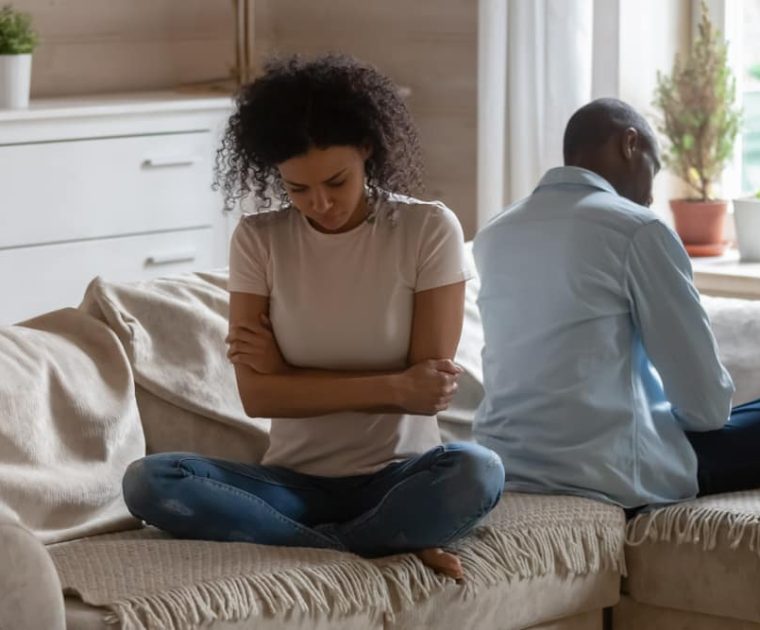5 Tips for Dealing with Anxiety and Relationship Doubts

When it comes to anxiety and relationships, it can be tough to know what’s normal and what’s not. It’s common to experience doubts and worries in a relationship, but if those doubts start to take over your life, they can become a serious problem. If you’re struggling with anxiety and relationship doubts, here are some tips that can help.
1. Talk to a Professional About Your Anxiety and Relationship Doubts
If you’re struggling with anxiety and relationship doubts, it’s helpful to seek professional assistance. A therapist can help you understand and manage your anxiety and provide support and guidance in dealing with your relationship doubts.
It is difficult to see things clearly when we are anxious or doubting ourselves. A therapist can provide an objective perspective and help you develop a plan to address your anxiety and relationship doubts. They can also help you (and your partner) understand the root of your anxiety and doubts, which oftentimes do not come from where you think they are coming from.
Bringing in a professional for couples counseling helps you to pinpoint the source of these anxious and negative feelings, work through them, and understand how to prevent them from running your life and your relationship.
2. Identify Your Triggers
One of the best ways to manage anxiety and relationship doubts is to identify your triggers. What situations or circumstances tend to make you feel anxious or doubtful? Once you know your triggers, you can begin to develop a plan to avoid or cope with them.
Triggers can look different for everyone. For some, anxiety may be triggered by certain people or situations. For others, it may be triggered by intrusive thoughts or physical sensations.
In relationships, anxiety and doubts can be triggered by arguments, conflict, or feeling like you are not good enough (which can also be triggered by relationships or events from your past). No matter what your triggers are, it’s essential to be aware of them to begin managing your anxiety.
3. Maintain Open and Clear Communication
When you’re feeling anxious or are having doubts about yourself or your relationship, it can be challenging to express what you’re feeling. However, open and transparent communication is key to managing anxiety and relationship doubts.
Talk to your partner about your feelings and why you’re feeling them. If you’re feeling anxious, let them know and explain what is making you feel that way. If you’re having doubts about your relationship, share those with your partner as well. Clear communication will help you and your partner understand each other better and can also help to reduce anxiety and relationship doubts.
If you feel uncomfortable communicating with your partner, seek a third party, such as a counselor or therapist, to guide you through it and help you and your partner learn new ways of communicating and feel comfortable doing it. This will pay off immensely in the future.
4. Develop a Healthy Routine for Yourself
This is one of the most underrated and vital things you can do to manage anxiety and relationship doubts. Our minds and bodies feel more stable and secure when we have a healthy routine.
This sense of stability can help to reduce anxiety and relationship doubts and make you feel more comfortable and confident in yourself and your relationships.
The role that food, exercise, and sleep play in our overall health cannot be understated. It affects the way we think, the way we feel, and the way we behave. For so long, we viewed mental health as separate from physical health, but we now know they are very much connected.
A healthy routine looks different for everyone, but should generally include healthy eating habits, regular exercise, adequate sleep, and relaxation time.
When you are feeling anxious, doubtful, or triggered, you can also practice meditation or deep breathing exercises that help to calm the mind and body. It’s crucial to find a routine that works for you and that you can stick to.
5. Identify Your Anxious Thoughts or Doubts and Question Them
Being aware of your anxious thoughts or doubts is an important step in managing them. Once you are aware of them, you can begin to question them. Why am I feeling this way? What evidence do I have to support this thought or belief?
Anxious thoughts and doubts often arise from our insecurities or past experiences. They are not always based on reality or rational thought. By questioning your anxious thoughts and doubts, you can begin to see them for what they are and start to let them go.
So what would this look like?
If you are feeling anxious or doubting your relationship for one reason or another, take a step back and ask yourself why. Do you have any evidence to support your anxiety or doubts?
Is your anxiety or doubt based on anything that has happened recently, or is it coming from a place of insecurity or past experiences?
Answering these questions can help you to see your anxiety or doubt more clearly and identify what you need to do to feel better. You may conclude that you need to communicate with your partner about something specific to help you feel more secure. You may realize that the root of this anxiety or doubt came from a rough day at work and a lack of sleep.
Identifying your anxious thoughts and doubts is an essential step in managing them because it allows you to see them for what they are and start to let them go.
To Wrap Things Up
It’s important to understand that there is no one-size-fits-all answer when it comes to these issues. What works for someone else may not work for you, so be sure to experiment until you find something that helps. You can get the guidance you need for your couple and anxiety therapy. San Diego residents can seek professional help to navigate this process with Estes Therapy.
It’s essential to keep in mind that your feelings are valid. Even if your partner doesn’t share your concerns or doubts about the relationship, that doesn’t mean they’re not real to you. Don’t hesitate to reach out for help if you need it. Talking to a therapist or counselor can be incredibly helpful in managing anxiety and relationship doubts.





Leave a Reply